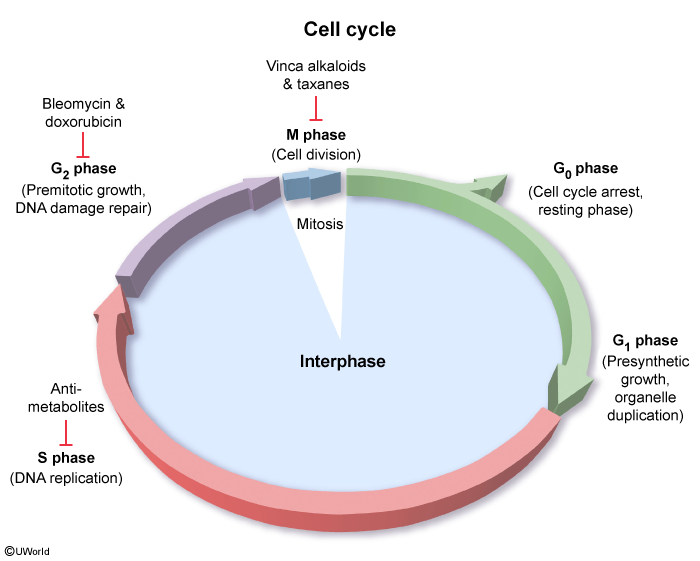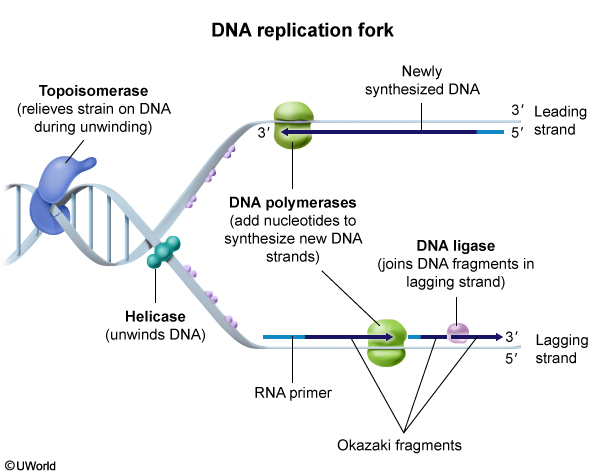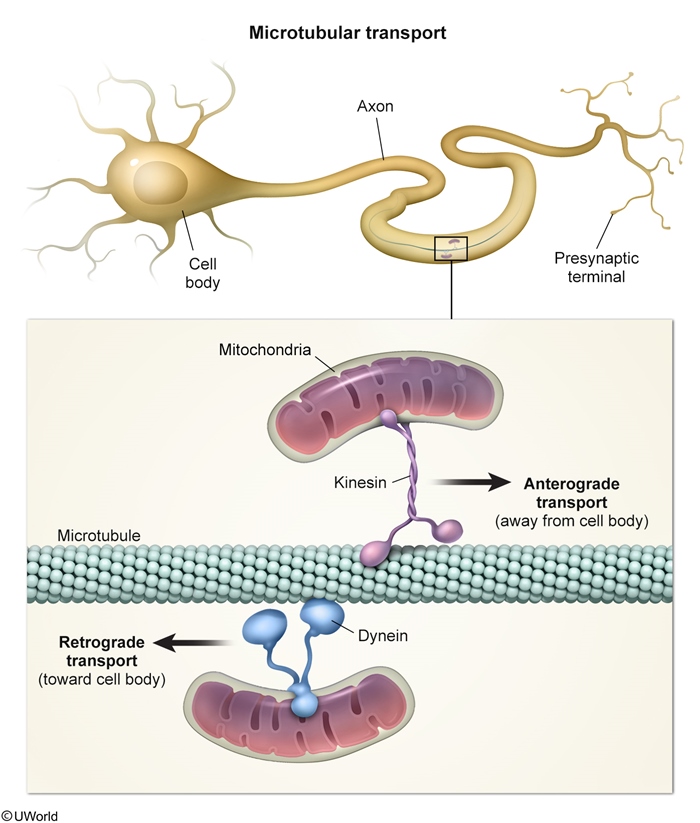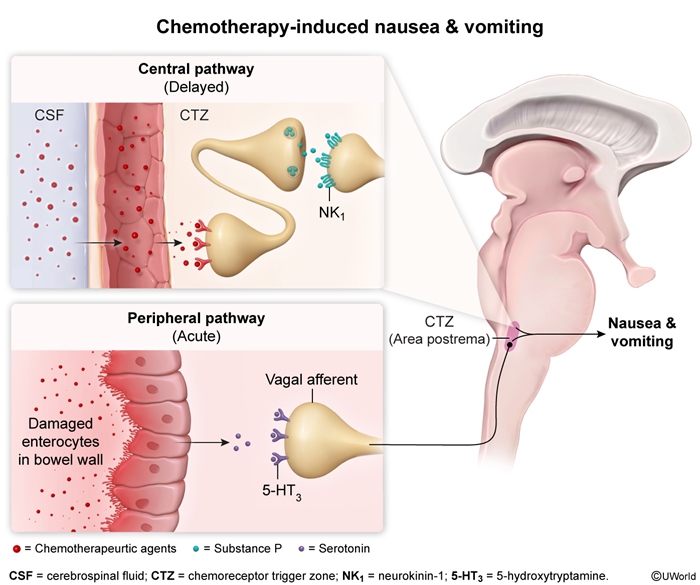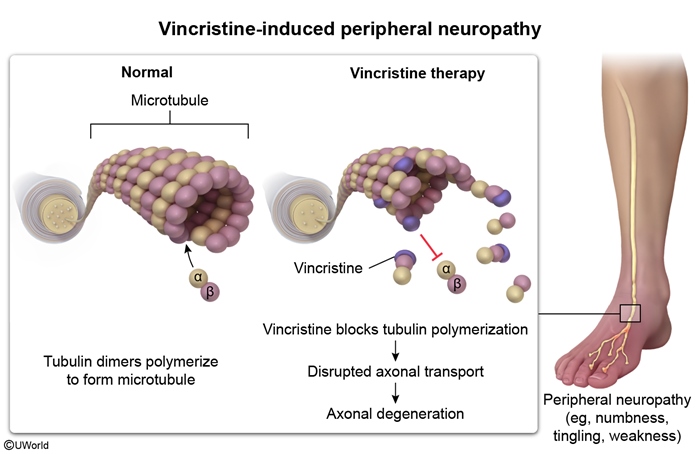Microtubule Inhibitors
Article Sections
Introduction
Microtubule inhibitors are a class of chemotherapeutic agents that disrupt the dynamic assembly and disassembly of microtubules. Essential components of the cytoskeleton, microtubules are involved in cellular structure, intracellular transport, and mitotic division. Microtubule inhibitors arrest cell division and are especially effective against rapidly proliferating cancer cells. These agents are fundamental components of many chemotherapeutic regimens treating a variety of malignancies.
Overview of chemotherapy
Cancer is a heterogeneous disease characterized by the uncontrolled growth of abnormal cells that have acquired the ability to evade the body's normal control mechanisms (eg, resisting apoptosis, escaping immune surveillance).
Various strategies have been developed to treat cancer, including different combinations of surgery, chemotherapy, and radiation therapy. Chemotherapy involves the use of certain drugs (ie, chemical agents) to prevent the further growth of or induce death in these proliferating cells. Chemotherapeutic agents achieve these goals through different mechanisms that target various cellular components, including nucleic acids (eg, damaging DNA), cellular enzymes (eg, inhibiting enzymes required to synthesize essential cell proteins), or cellular structural components (eg, preventing the assembly of microtubules).
Continue Learning with UWorld
Get the full Microtubule Inhibitors article plus rich visuals, real-world cases, and in-depth insights from medical experts, all available through the UWorld Medical Library.
Unlock Full AccessFigures
